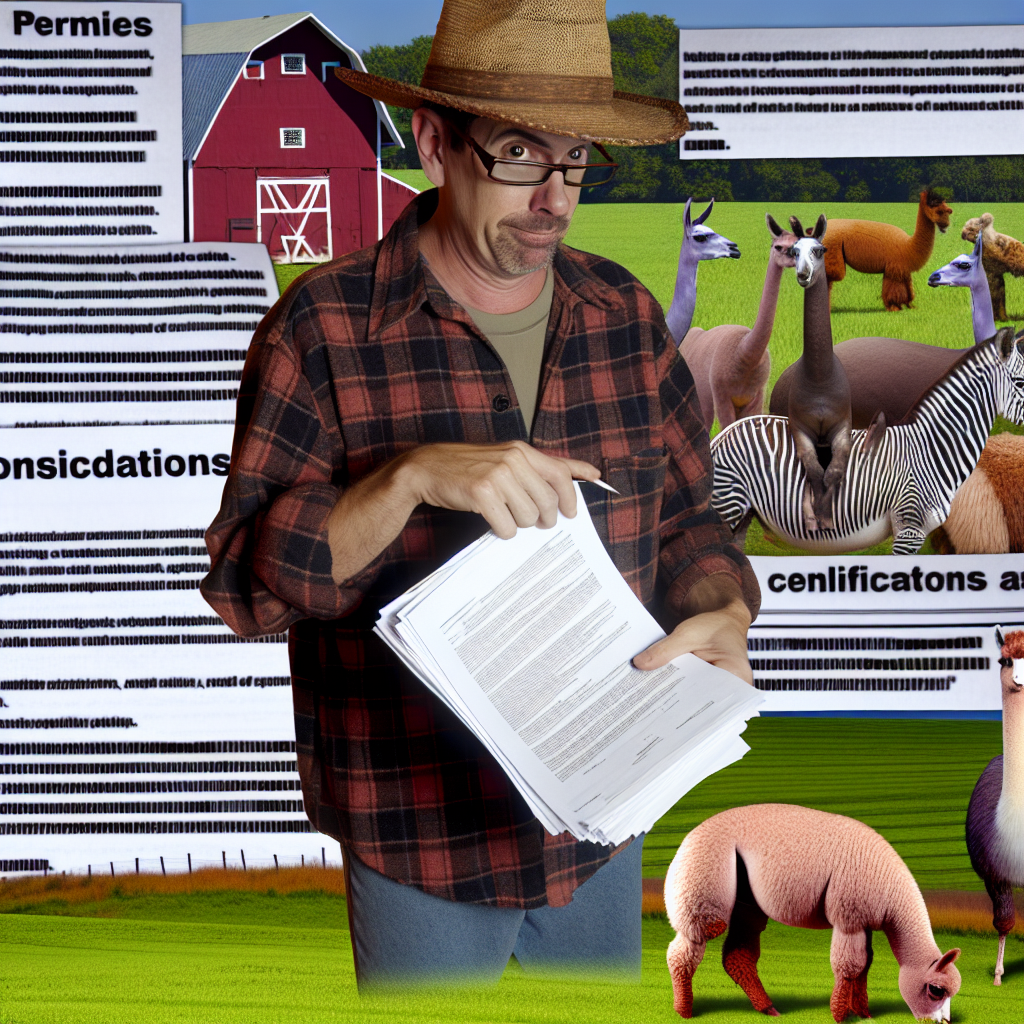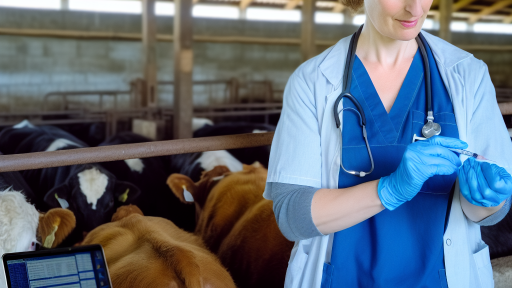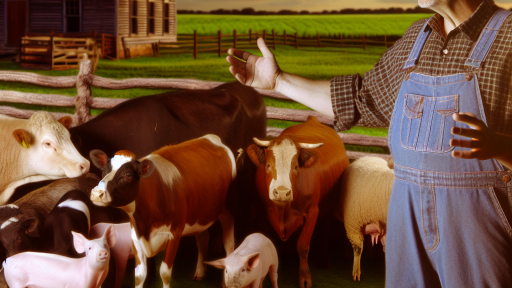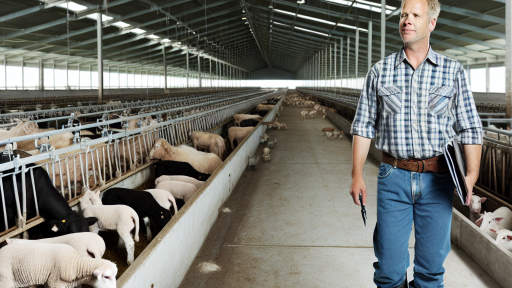Overview of Exotic Livestock Farming
Definition and Scope
Exotic livestock farming involves raising animals that are not native to the local environment.
This practice includes species such as alpacas, emus, and kangaroos.
Farmers engage in exotic farming for various reasons, including economic benefit and biodiversity enhancement.
In recent years, demand for unique animal products has increased significantly.
As a result, many agricultural regions have embraced exotic livestock farming.
However, it is essential to understand the legal considerations involved in this type of farming.
Types of Exotic Livestock
Exotic livestock comes in a variety of species.
Some popular examples include:
- Capybaras
- Zebras
- Watusi cattle
- Llamas
- Miniature donkeys
Each type of animal requires specific care and knowledge from the farmer.
Benefits of Exotic Livestock Farming
This type of farming offers distinct advantages.
First, it provides unique products that can attract specific markets.
Additionally, farmers can diversify their income streams.
Moreover, exotic livestock can contribute to conservation efforts.
By preserving rare species, farmers can play a role in ecological sustainability.
Challenges in Exotic Livestock Farming
Despite its benefits, exotic livestock farming poses challenges.
Transform Your Agribusiness
Unlock your farm's potential with expert advice tailored to your needs. Get actionable steps that drive real results.
Get StartedFarmers must deal with regulatory hurdles specific to exotic species.
Healthcare for exotic animals can also be complex and costly.
Furthermore, there may be risks related to animal welfare and public safety.
Lastly, finding suitable markets for exotic products can be difficult.
Legal Framework Governing Exotic Livestock
Understanding National Laws
National laws play a crucial role in exotic livestock farming.
Each country sets regulations concerning the ownership and sustainability of exotic animals.
These laws typically cover important aspects like animal welfare, farming practices, and wildlife conservation.
Farmers must familiarize themselves with federal regulations that may apply to their operations.
Notably, certain species may require special permits or licenses for ownership.
Additionally, violation of national laws can result in penalties or loss of farming rights.
Examining Local Laws
Local laws can significantly influence exotic livestock farming activities.
Each state or municipality may impose unique restrictions or requirements.
For instance, some localities might ban specific species altogether.
Permits may vary widely based on local regulations, emphasizing the need for research.
Furthermore, zoning laws can affect where farmers can keep exotic livestock.
Farmers should consult local authorities to ensure compliance with these regulations.
Permitting and Licensing Requirements
Obtaining the right permits is essential for legal exotic livestock farming.
Farmers may need both federal and state permits, depending on their location.
Some states require a general exotic animal permit, while others have specific permits for different species.
Health inspections may also be part of the permit application process.
Therefore, it is important to prepare all necessary documentation beforehand.
Best Practices for Compliance
Ensuring compliance with laws is paramount for farmers interested in exotic livestock.
Keeping accurate records of all livestock and transactions helps maintain transparency.
Regularly updating knowledge about changes in laws is equally important.
Showcase Your Farming Business
Publish your professional farming services profile on our blog for a one-time fee of $200 and reach a dedicated audience of farmers and agribusiness owners.
Publish Your ProfileMoreover, connecting with local farming or wildlife organizations can provide helpful resources.
Lastly, attending workshops or seminars can enhance understanding of legal obligations.
Permitting Requirements for Exotic Livestock Farming
Overview of Permitting
Exotic livestock farming requires strict adherence to regulatory standards.
Permits ensure that livestock is raised in humane and environmentally safe conditions.
Therefore, understanding the permit process is crucial for any farmer.
Types of Permits
Farmers must apply for various permits, depending on their location and species.
These can include wildlife permits, agricultural permits, and health permits.
Each type serves a specific purpose and sets unique requirements.
Permit Application Process
The permit application process can be intricate and time-consuming.
First, the applicant must provide detailed information about the livestock.
This includes the species, numbers, and the farming methods used.
Next, an environmental impact assessment may be required.
This step evaluates potential harm to local ecosystems.
Fees and Costs
Applicants should be aware of the fees associated with the permitting process.
Fees can vary significantly based on location and species.
Additionally, farmers may encounter other costs, such as inspections and renewals.
Importance of Compliance
Compliance with permitting requirements is essential for several reasons.
Firstly, it protects the rights and welfare of the animals involved.
Secondly, compliance fosters a sustainable farming environment.
Lastly, non-compliance can lead to hefty fines or the loss of farming privileges.
Explore Further: Effective Parasite Control in Goats
Zoning Regulations
Understanding Local Land Use Policies
Zoning regulations play a crucial role in exotic livestock farming.
These regulations dictate how land can be used in specific areas.
Farmers must familiarize themselves with local zoning laws.
These laws can determine what types of livestock you can raise.
Moreover, zoning regulations often specify where farms can be located.
Your farm’s location can directly influence your operation’s success.
Types of Zoning Designations
Various zoning designations exist within municipalities.
They typically include agricultural, residential, and commercial classifications.
In agricultural zones, farming activities generally face fewer restrictions.
Conversely, residential zones may limit livestock types and numbers.
Some areas may impose specific regulations for exotic animals.
Obtaining Permits
Farmers often need to obtain permits to operate legally.
You may need permits for animal housing, fencing, and water access.
Check with your local government for specific requirements.
Each jurisdiction can have different permit processes.
Potential Zoning Challenges
Zoning challenges can arise during farming operations.
Neighbors may file complaints about noise or odor.
Such complaints can lead to investigations or required changes.
These challenges emphasize the importance of good neighbor relations.
Showcase Your Farming Business
Publish your professional farming services profile on our blog for a one-time fee of $200 and reach a dedicated audience of farmers and agribusiness owners.
Publish Your ProfileAdapting to Changes in Zoning Laws
Zoning laws can change based on local government decisions.
Stay abreast of any proposed changes in your area.
Attending local council meetings can provide vital information.
Community involvement can also influence zoning outcomes.
Being proactive can help you adapt your farming practices.
Explore Further: Managing Inbreeding in Livestock Populations
Animal Welfare Laws: Compliance with Ethical Standards in Exotic Farming
Animal welfare laws play a crucial role in exotic livestock farming.
These laws ensure that exotic animals receive proper care and humane treatment.
Farmers must comply with local, national, and international legislation.
Understanding these laws is fundamental for responsible farming practices.
Key Regulations to Follow
Various regulations govern animal welfare in exotic farming.
The Animal Welfare Act is one of the primary pieces of legislation.
This act sets minimum standards for the care of animals.
Additionally, the Endangered Species Act protects certain exotic species.
Farmers must familiarize themselves with applicable state laws as well.
Minimum Housing and Care Standards
Animal welfare laws outline specific housing requirements for exotic livestock.
These regulations ensure that animals have adequate space to move freely.
Furthermore, proper ventilation and temperature control are essential.
Farmers must provide appropriate nutrition and veterinary care too.
Failing to meet these standards can lead to legal repercussions.
Training and Education Requirements
Farmers must undergo training to comply with animal welfare laws.
Education programs offer essential knowledge about exotic animal care.
Regular workshops help farmers stay updated on legal changes.
These programs also promote ethical farming practices among livestock handlers.
Monitoring and Inspections
Compliance with animal welfare laws requires regular monitoring and inspections.
Government agencies often conduct inspections to ensure compliance.
These inspections may include evaluations of animal health and welfare.
Non-compliance can result in fines or loss of farming permits.
Ethical Implications of Exotic Farming
Beyond legal compliance, ethical farming involves treating animals with respect.
Farmers should aim for high standards of animal care at all times.
Ethical considerations also extend to breeding practices and habitat preservation.
Pursuing ethical farming enhances the public perception of exotic livestock farming.
You Might Also Like: Proper Loading Techniques for Livestock Vehicles
Trade Regulations: Importing and Exporting Exotic Livestock
Understanding Legal Frameworks
Trade regulations for exotic livestock involve complex legal frameworks.
These frameworks vary significantly from one jurisdiction to another.
It is essential to understand the rules that govern your specific situation.
Import Regulations
Importing exotic livestock requires compliance with local laws.
Each country has specific import regulations designed to protect animal health.
Farms must obtain permits from the relevant governmental agencies.
For example, the U.S. Department of Agriculture oversees many import regulations.
Showcase Your Farming Business
Publish your professional farming services profile on our blog for a one-time fee of $200 and reach a dedicated audience of farmers and agribusiness owners.
Publish Your ProfileAdditionally, restrictions often apply to specific species due to ecological concerns.
Research the health certificates mandated for imports.
Export Regulations
Exporting exotic livestock also involves navigating numerous regulations.
Exporters must familiarize themselves with the importing country’s requirements.
Documentation like health certificates and inspection reports is often necessary.
Moreover, species that may seem safe could face bans in certain regions.
Engaging with a legal expert can aid in compliance with these regulations.
Trade Agreements
Trade agreements between countries can influence exotic livestock trading.
Favorable agreements can lower tariffs and streamline export processes.
However, some agreements may impose additional trade restrictions.
Stay updated with the latest trade policies related to livestock trade.
Penalties for Non-Compliance
Non-compliance with trade regulations can result in severe penalties.
Penalties may include fines, confiscation of animals, or even criminal charges.
Therefore, maintaining thorough documentation and compliance is crucial.
Regular audits of records can help prevent unforeseen issues.
Uncover the Details: Genetic Selection Techniques for Livestock Management

Insurance Considerations: Liability and Coverage for Exotic Farms
Understanding Liability Risks
Exotic livestock farming introduces unique liability risks.
Farmers face potential injuries to visitors or workers.
Additionally, there are risks related to animal behavior.
Insurance is essential for protecting against these risks.
Selecting Appropriate Coverage
Choosing the right insurance policy is crucial.
Farmers should consider general liability coverage.
This coverage protects against bodily injury and property damage.
Property insurance is also important for livestock and facilities.
Specific Coverage for Exotic Animals
Exotic animals may require specialized coverage.
Liability for unique species can differ significantly.
Consider additional endorsements for specific animal types.
For example, coverage may vary for reptiles compared to mammals.
Compliance with Local Regulations
Farmers must comply with local insurance requirements.
Consulting local regulations can avoid legal complications.
Understanding state laws is essential for compliance.
Working with an Insurance Broker
Engaging an insurance broker can streamline the process.
They can help identify suitable coverage options.
A broker understands the nuances of exotic farming insurance.
Furthermore, they can assist with claims processes when needed.
Regular Policy Review and Updates
Regularly reviewing insurance policies is necessary.
As farming operations grow, coverage needs may change.
Updating policies helps ensure adequate protection.
Farmers should also reassess risks annually.
Importance of Insurance for Exotic Farms
Insurance is vital for exotic livestock farmers.
Showcase Your Farming Business
Publish your professional farming services profile on our blog for a one-time fee of $200 and reach a dedicated audience of farmers and agribusiness owners.
Publish Your ProfileProper coverage provides peace of mind and financial security.
With careful consideration, farmers can manage potential risks effectively.
Environmental Regulations: Managing Impact and Compliance with Conservation Laws
Understanding Environmental Regulations
Environmental regulations govern how livestock farming operates within ecological systems.
Farmers must adhere to state and federal laws to mitigate environmental impact.
These regulations aim to protect natural resources and biodiversity.
Key Environmental Impact Areas
Exotic livestock farming affects various environmental factors.
Water quality is a significant concern for farmers and regulators alike.
Soil erosion can result from improper livestock management practices.
Additionally, waste management has critical implications for local ecosystems.
Compliance with Conservation Laws
Compliance with conservation laws is essential for sustainable farming.
Farmers should be aware of the Endangered Species Act implications.
Additionally, Clean Water Act requirements play a critical role in farming practices.
Negotiating permits can also be a heavy responsibility for exotic ranchers.
Best Practices for Environmental Management
Implementing best practices can improve compliance with environmental regulations.
Regularly assessing environmental impact helps maintain compliance standards.
Utilizing sustainable grazing techniques can reduce soil erosion.
Moreover, adopting a nutrient management plan can enhance water quality.
Community Involvement and Awareness
Engaging the community fosters awareness about environmental issues.
Farmers should participate in local conservation programs.
Collaboration with environmental groups can provide valuable resources.
Furthermore, educating the public can lead to greater support for sustainable practices.
Best Practices for Record Keeping
Importance of Accurate Records
Accurate records are essential for legal compliance in exotic livestock farming.
They help demonstrate adherence to regulations and standards.
Records provide a clear history of livestock management practices.
Additionally, they support accountability to regulatory bodies.
Types of Records to Maintain
Farmers should maintain several types of records.
- Purchasing records for all livestock acquired.
- Health records documenting veterinary visits and treatments.
- Breeding records tracking genetic lineage and breeding cycles.
- Sales records showing livestock sold and financial transactions.
- Daily activity logs indicating daily care and feeding routines.
Implementing a Record Keeping System
A robust record keeping system simplifies documentation processes.
Use digital tools for easier access and storage of records.
Regularly back up digital files to prevent data loss.
Consider using farm management software specifically designed for livestock operations.
Review and Update Records Regularly
Regularly review and update records to ensure accuracy.
Schedule routine audits of your records and compliance status.
Engage employees in the record keeping process for consistency.
Establish a timeline for when records should be updated.
Training Staff on Record Keeping
Educate farm staff about the importance of accurate record keeping.
Provide training sessions on using your record keeping system.
Encourage staff to ask questions if they are unclear about procedures.
Recognize and reward diligent record keeping efforts.
Additional Resources
Animal Science (ANSC) < University of Arkansas
Guide for the Care and Use of Laboratory Animals, 8th edition …
Showcase Your Farming Business
Publish your professional farming services profile on our blog for a one-time fee of $200 and reach a dedicated audience of farmers and agribusiness owners.
Publish Your Profile



